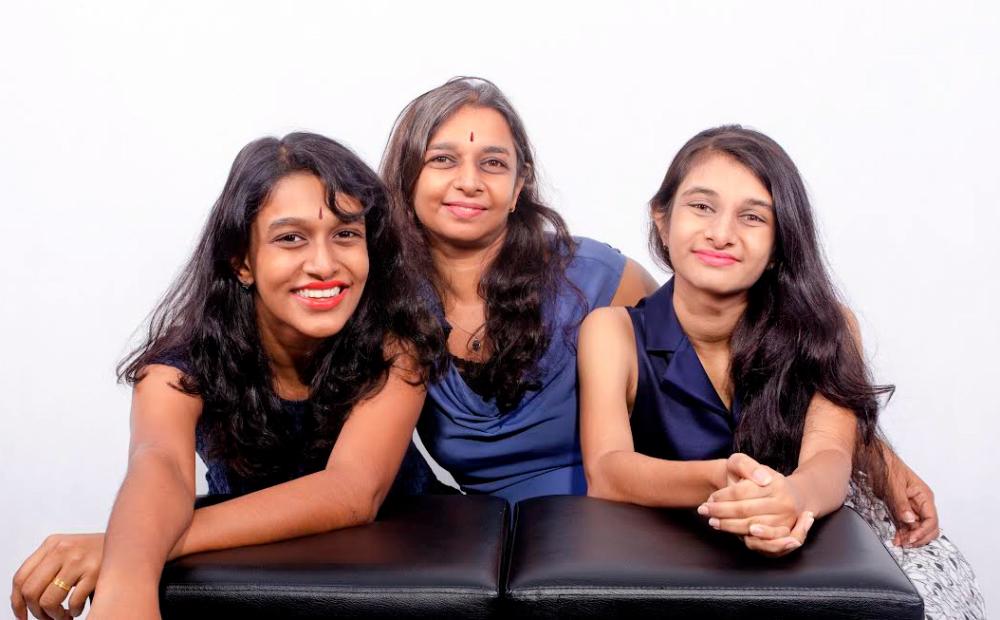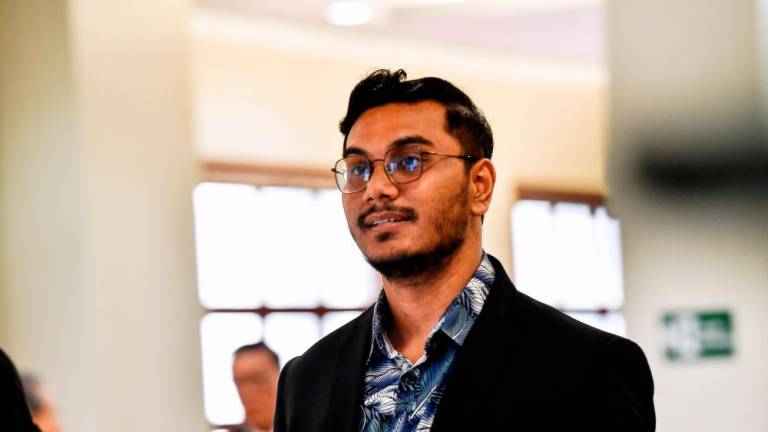PETALING JAYA: Most parents would probably wish a child came with a handbook or a manual to help raise them. But the truth is, the parents are the handbook.
According to Valsala Krishnan, founder of a leading awareness training and consultancy company, if parents understand themselves well, they would be able to understand their children.
“I apply the SIEP (spirit, intellect, emotions and physical senses) way of thinking to understand my subconscious programming,” the single mother of two told theSun.
“In the simplest term, SIEP is to take deep breaths to activate the conscious mind and respond to situations. As I do this, I understand why I think in a certain way or why I say and do certain things. I can see similarities in how my children think, in what they say and do.
“The second factor is the environment children are exposed to. This includes the movies they watch, the games they play, the people taking care of them, friends and relatives. If you get the first one (genes) wrong, here is your chance to correct your child’s subconscious programming by changing their environment.”
She added that the biggest challenge in raising children today would be time.
“Looking back at my childhood, my mother was a housewife and we lived in a small town. With little technology, life was slower. It’s different now. Raising children is a full-time career and on top of that, parents have careers too. We tend to live in stress and rush most of the time. When we are tired, we are not the best version of ourselves and often, it is our family that is left with the tired and grumpy us,” she said, adding that the method of raising children has since changed in many ways.
She said when it comes to being a parent, the most important factor in raising a child would be having stable mental health.
“If you can think, you can solve any problems, including finances. But we often react and get emotional without even realising it. Everyone tends to react, but the difference is how big the trigger is and how quickly they can snap out of it.”
Given that making mistakes is a part of growing up, Valsala said parents should assure their children that it is acceptable to make mistakes. And if they achieve something, it should be rewarded with praise.
“It is a common reaction to scold or punish children when mistakes are made but those actions do not help children learn from their mistakes. Instead, it encourages them to portray a perfect image. We need to be okay with our children making mistakes. Otherwise, they will be afraid to try anything new. In time, they will not want to do anything at all.”
Counselling psychologist Dr Gerard Louis, who is also dean at the Faculty of Behavioural Sciences, Education and Languages at HELP University, said parenting styles have come a long way since his time as a child. He noted that parents today have to be ready when it comes to answering questions from their children.
“The children of my generation did not ask as many questions as children today. I believe it has a lot to do with personal rights and understanding the right to speak up and question what they feel is valid.”
He added that parenting styles also plays a crucial role in the holistic development of the child’s journey towards adulthood. That includes how the parents relate to the child through daily interactions, guidance and the chosen method of discipline.
“The most commonly practised here is the authoritarian style, where parents may be too protective. This isn’t exactly ideal because when no room for mistakes and improvement is given, it will impact the child negatively in terms of confidence,” he said.
“Parents who practise this style should know when to be an authoritarian and when to be an authoritative parent. Different situations call for different parenting styles. No one shoe fits all when it comes to parenting.”














